For a programmer, coding is always fun. It’s more fun and productive when you have the best IDE software which makes you feel comfortable to code without having any trouble. There are a plenty of integrated development environment software’s where you can practice programming with so many amenities. So, specially the beginners often get confused which code editors and IDE is better to start with and can ensure better experience, even the experienced ones are always looking for the best one, though they are using the better one now.
Best IDE Software List
So, to help you to choose one of the best IDEs for you, I have researched on all the existing IDE software’s and made this list of impressive ones. Check out the list and choose the best one for you.
1. eclipse

Eclipse is one of the most popular IDEs and open-source software. It is user-friendly and the beginner can have a better experience also. It is easy to work with this IDE.
Features:
- Supports all platforms like Windows, Linux, Mac OS X.
- Supports Debugging, Compiling, Profiling, Auto-completion of code.
- It has a great graphical user interface (GUI) to arrange an element using drag and drop functionality.
- It also supports Static Code Analysis.
PS: This is the IDE which I use to practice Java. I think it is really user-friendly and someone can easily adapt with its interface.
2. Visual Studio Code
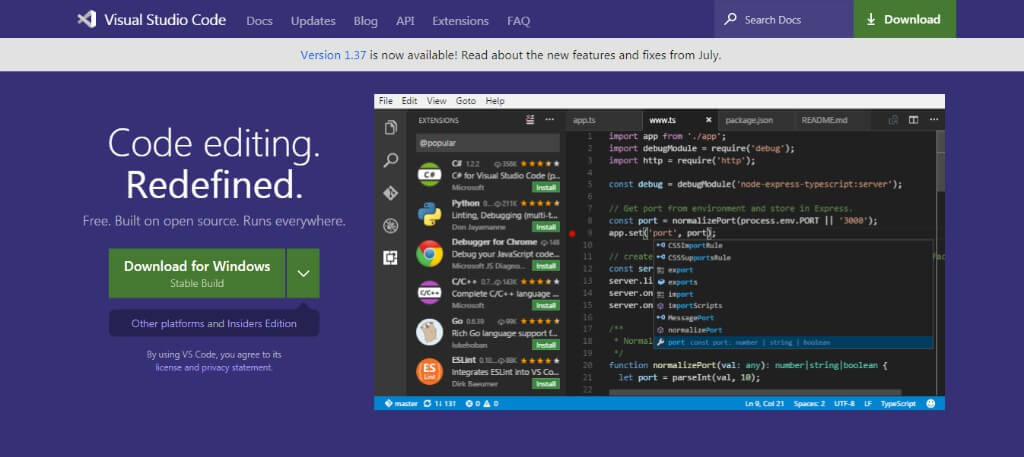
Visual Studio Code is a free and open-source IDE designed by Microsoft based on Electron framework. It’s fast, lightweight and powerful too. It’s gaining popularity rapidly for providing a great user experience.
Features:
- Cross-platform IDE which works on Windows, Linux and macOS.
- Supports all most all major programming languages.
- Smart code completion, debugging, code refactoring also provides customization.
- It has an integrated Git that allows for pulling, committing and publishing using a simple GUI.
3. Code::Blocks
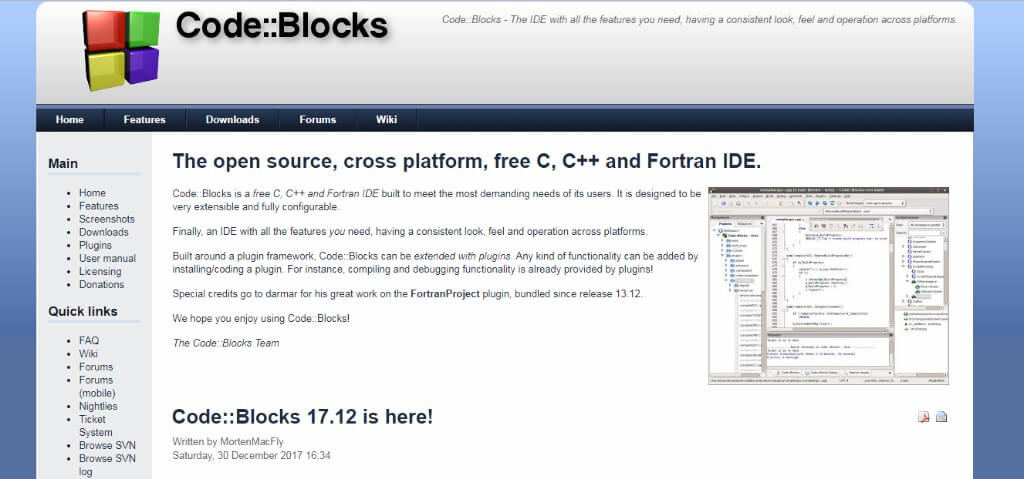
Code::Blocks is a free C, C++ and Fortran IDE. It is one of the most widely used and popular IDEs. An IDE with all the features you need, having a consistent look, feel and operation across platforms. For the beginner it is one of the best IDEs to start with as it is very user-friendly and someone can easily get used to with the environment.
Features:
- It supports all platforms.
- Designed to be fully configurable and extensible with its plug-ins.
- It can visualize object-oriented programming.
- It has GUI and also supports Static Code Analysis.
PS: I have been using this IDE since I started learning C++ and it’s pretty good. Specially for the beginner who wants to learn C/C++, this can be the best solution for them to start with as it is easy to operate.
4. Sublime Text
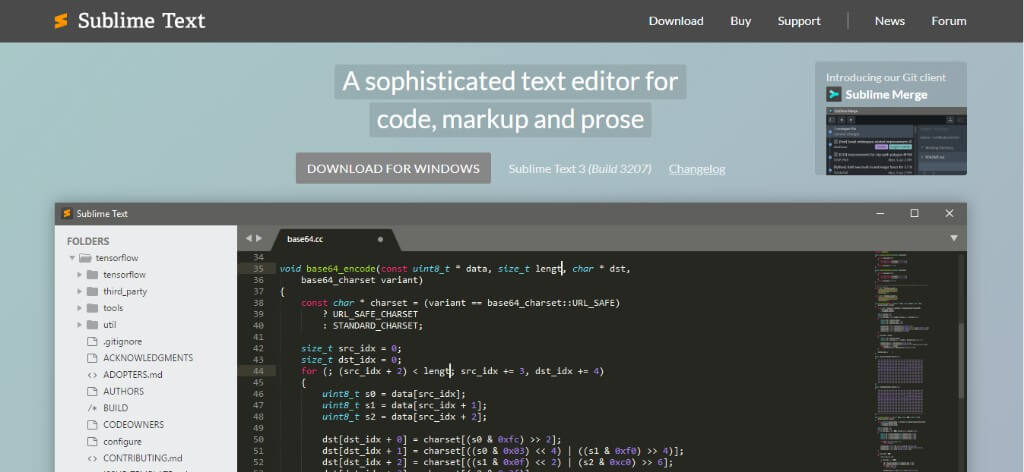
Sublime Text is proprietary cross-platform IDE with a API. It has a smooth user interface along with strong performance. It will be more fun to coding with this IDE for the experienced programmers.
Features:
- Support many programming languages and markup languages also.
- Quick navigation to files, symbols or lines.
- Can generate a project-wide index of every function, method, and class automatically.
- Highly customizable and powerful
- Embedded with syntax highlighting and auto-correction , even has auto-save facility.
5. GNAT Programming Studio
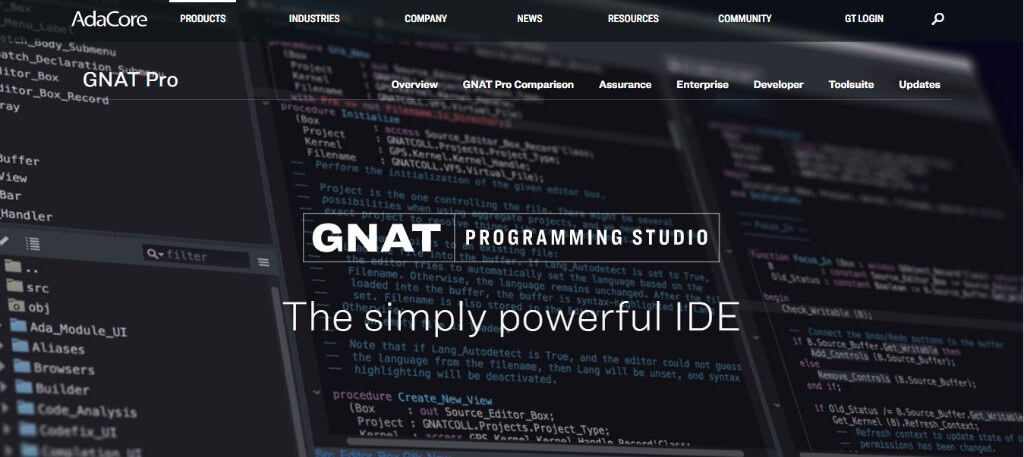
The GNAT Programming Studio is a powerful, intuitive, lightweight and highly advanced free IDE. It is highly extensible and adapt to systems of any complexity. GPS is easy to use for its natural interface.
Features:
- Multiplatform support
- GPS is multi-language IDE with advanced support for Ada, SPARK, C, C++, Python.
- Supports compiling, debugging, code coverage, profiling, auto-completion of code, code refactoring.
- Allows integration of third-party version control system and can be tailored to your specific project needs.
6. CodeLite
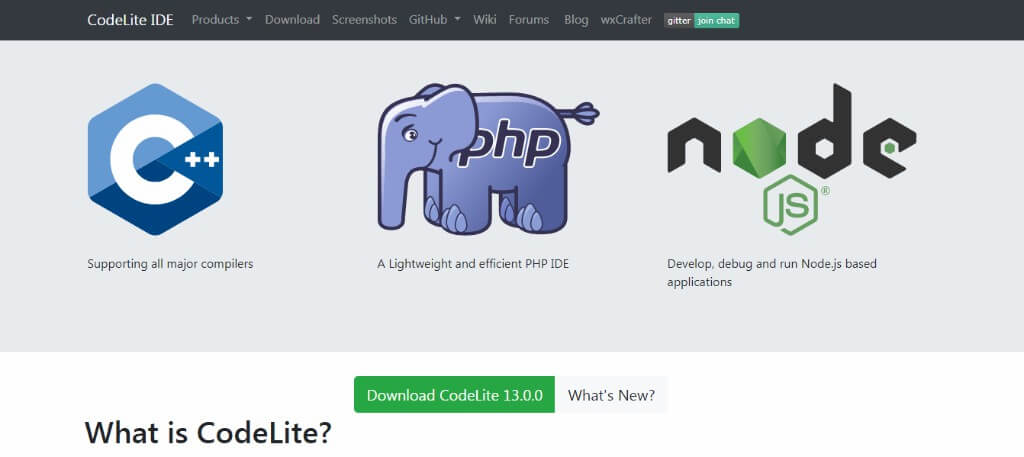
CodeLite is one of the impressive free, open-source IDEs for C, C++, PHP and JavaScript. It looks clean, lighweignt and has a good color customization. It can be a better choice for the beginner as it is easy to work with.
Features:
- Supports all most all OSs.
- Supports compilers with inbuilt GCC/Clang/VC++.
- Strong and fast completion using in-house parser.
- Errors are clickable via the Buildtab.
- Support next generation debugger, GBD, refactoring, Static Code Analysis.
7. NetBeans 8
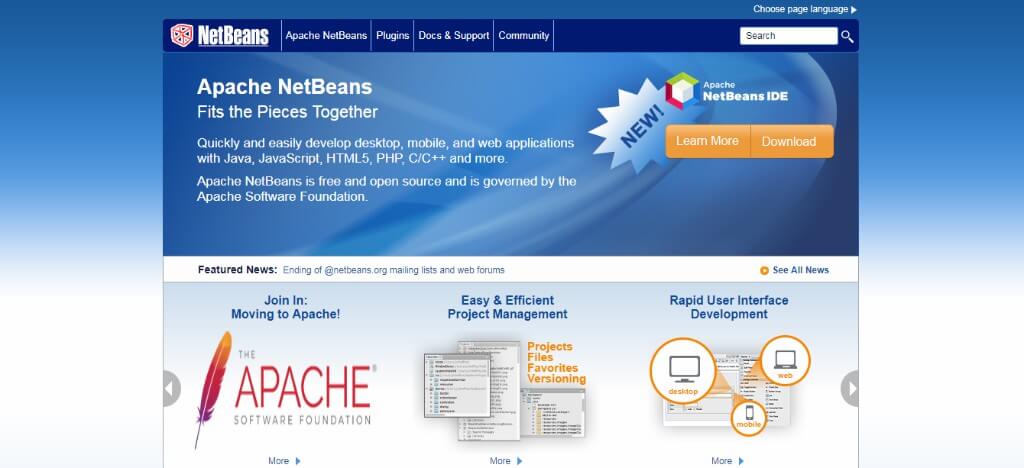
Netbeans is mostly recognized as the original free Java IDE, but it is much more than that. It supports various programming languages like C, C++, JavaScript, PHP etc. Though it is one of the mostly used and popular IDE , beginner may find it a little bit messy to work.
Features:
- Open-Source, multi-platform IDE.
- Code completion is fast and supports refactoring for C/C++.
- Rich Set of Community Provided Plug-ins.
- It comes with automatic indentation, semantic highlighting, and formatting , code folding, bracket matching and templates.
PS: I used this IDE to practice Java at the beginning. I hope you will enjoy working in this IDE, specially when learning Java/Javascript.
8. Qt Creator
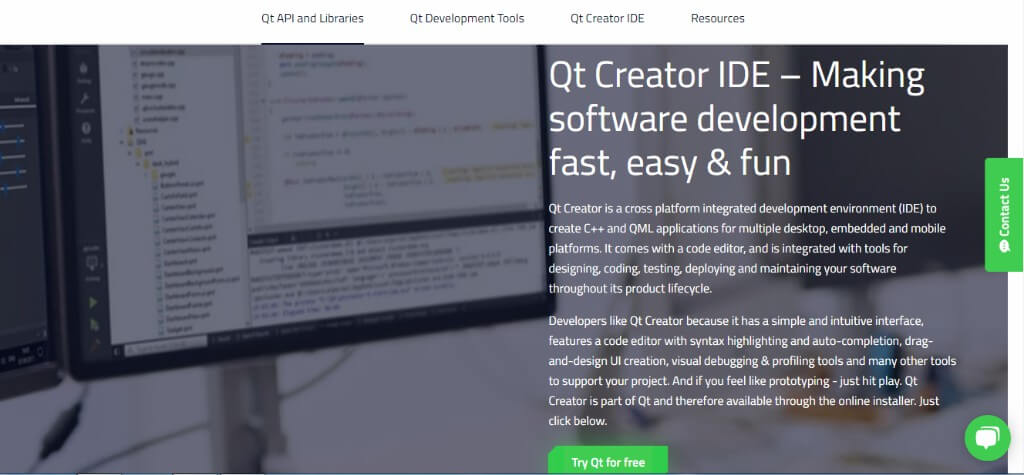
This one another highly advanced cross-platform IDE, but it is not free. However, you can get its one month free trial. Experienced programmer may find this IDE very impressive and interesting , but that may not be same for a beginner.
Features:
- It supports all most all OSs.
- Has visual debugger and integrated GUI.
- Supports Debugging, Compiling, Profiling, Auto-completion of code , Refactoring and Static Code Analysis.
- Has to drag and drop functionality.
9. Atom

Atom is another free and open-source IDE developed by GitHub. It is getting popularity rapidly as it meets the demand of both newbie and experienced. It is one of the highly configurable text editors.
Features:
- Multi-platform support
- Multi-language support with R and Python.
- Enables users to install third-party packages and themes to customize the feature.
- Supports plug-ins and embedded Git control.
- Smart autocompletion and supports command palette.
10. Visual Studio
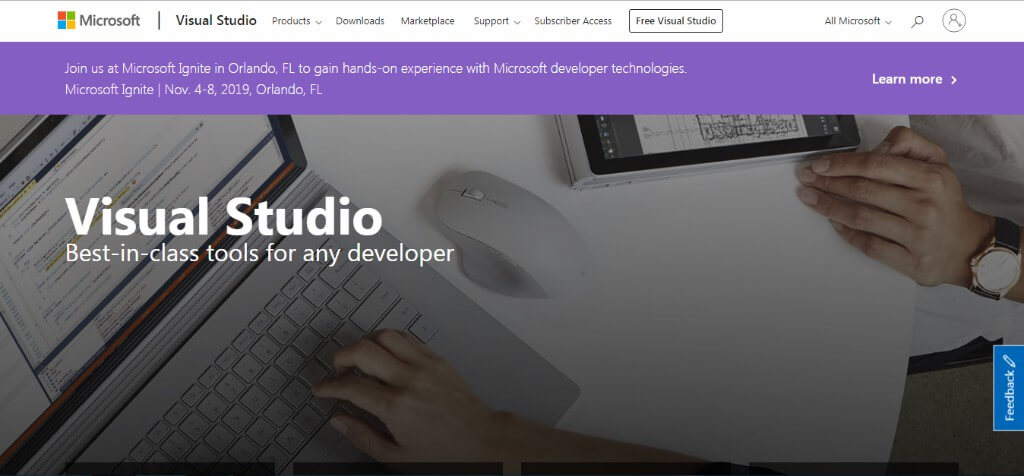
Visual Studio, also known as Microsoft Visual Studio is a full-featured IDE for Microsoft Windows. Visual Studio Community version is free for students, open source and individual developers. With this IDE, you can create both managed and native code.
Features:
- Supports different programming languages.
- Intelligent code completion, debugging as well as code refactoring.
- Forms designer for building GUI.
11. CLion
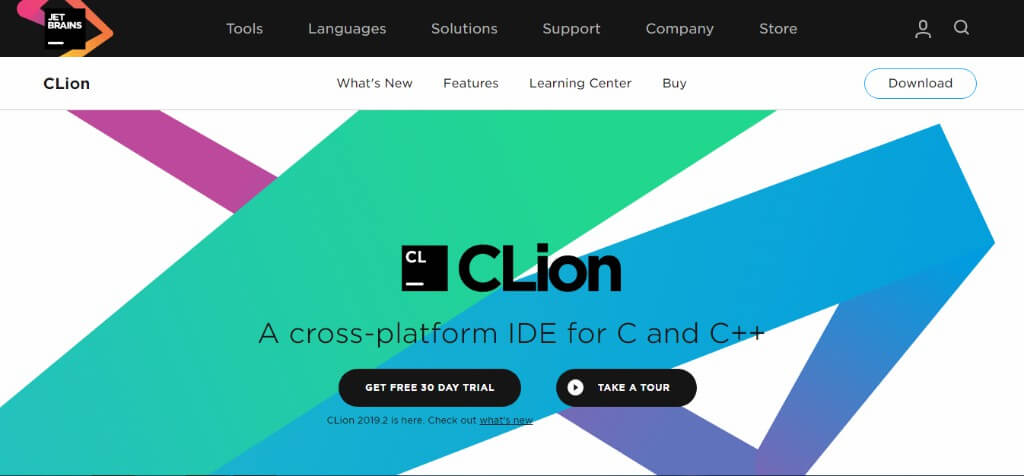
CLion is another cross-platform IDE for C and C++. Recently, It has become one of the popular IDEs as it is easy to use. Along with C and C++, Clion supports other languages like Kotlin, Python, Rust etc.
Features:
- Easy to start new projects and the addition of files in one click.
- Analyze the context of your project and make your coding faster.
- Makes it easy to navigate to a symbol, file or class.
- Generates code for you and saves from unnecessary typing.
- On-the-fly code analysis.
12. Dev-C++
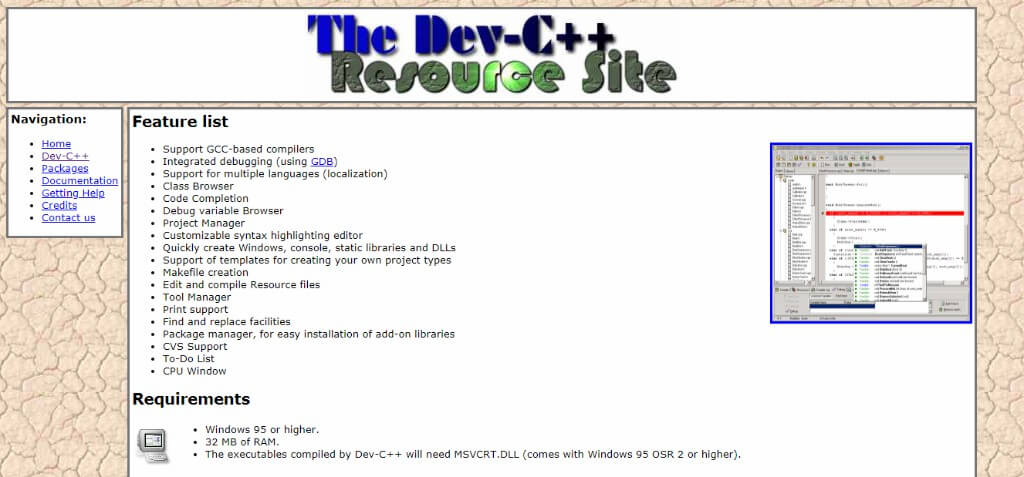
Dev-C++ is a free full-featured IDE for C and C++. It is an open source IDE, but supports Windows only.
Features:
- Supports GCC based compilers.
- Customizable syntax highlighting editor.
- Integrated debugging (using GDB).
- Support of templates for creating your own project types.
13. C++ Builder
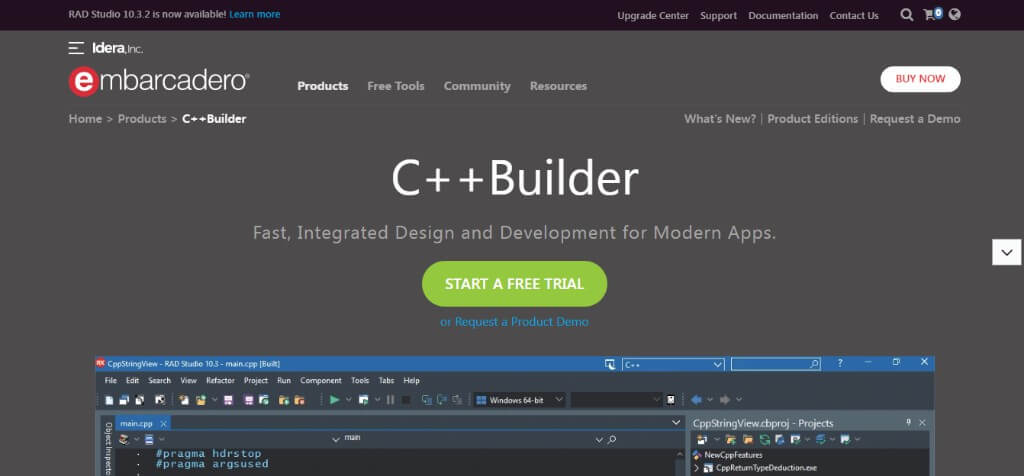
This is a RAD environment, packaged with a number of components that makes software coding simpler and faster. It is targeted at most modern platforms and operating systems such as Windows, iOS, OS X. You can develop code here with higher speed and productivity. It has a proprietary license.
Features:
- Community edition is full-featured free C++ IDE.
- Debugging and Compiler.
- GUI Builder, Class browser.
- Auto-completion &
- Supports refactoring.
14. MonoDevelop
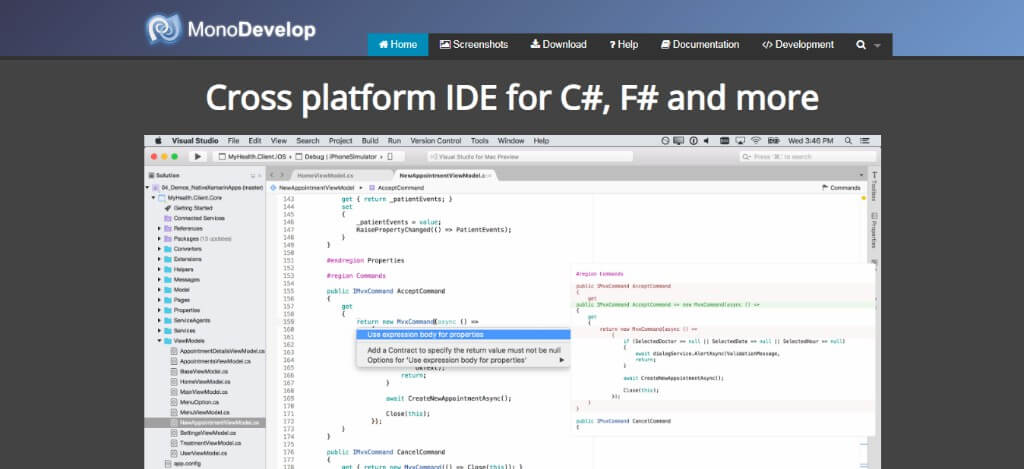
MonoDevelop is integrated open-source IDE and easy to understand. It integrates features similar to that of Microsoft Visual Studio, NetBeans such as IntelliSense, source control integration, auto code completion. You can also port .NET applications created with Visual Studio to Linux and Mac OS X with the same and a single code base for all platforms.
Features:
- Multi-platform.
- Advanced Text Editing.
- Support MS Visual Studio project formats.
- Integrated debugger and easy to use GUI designer.
- Configurable workbench.
Conclusion
Hope, you have already checked out the list. Don’t forget to comment us, if you love any of the IDEs listed above and do tell us why you love it. It may possible that I missed out any best IDE software that you know. So, please do comment with details , if you know any. Thanks in advance for your helpful comments.
Happy coding!
